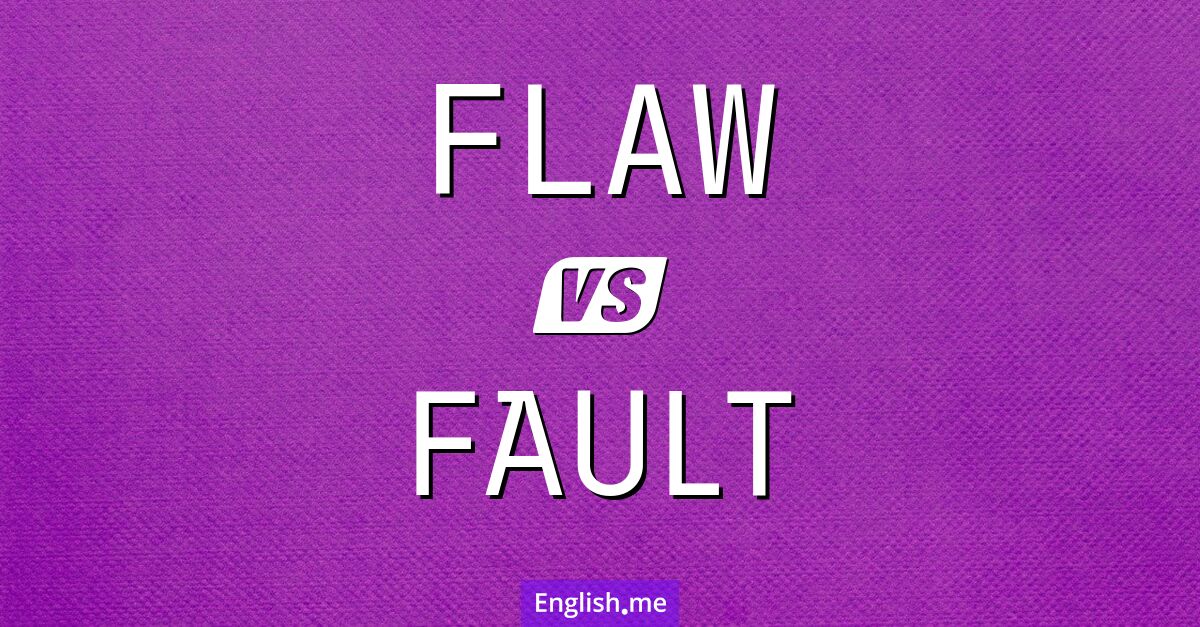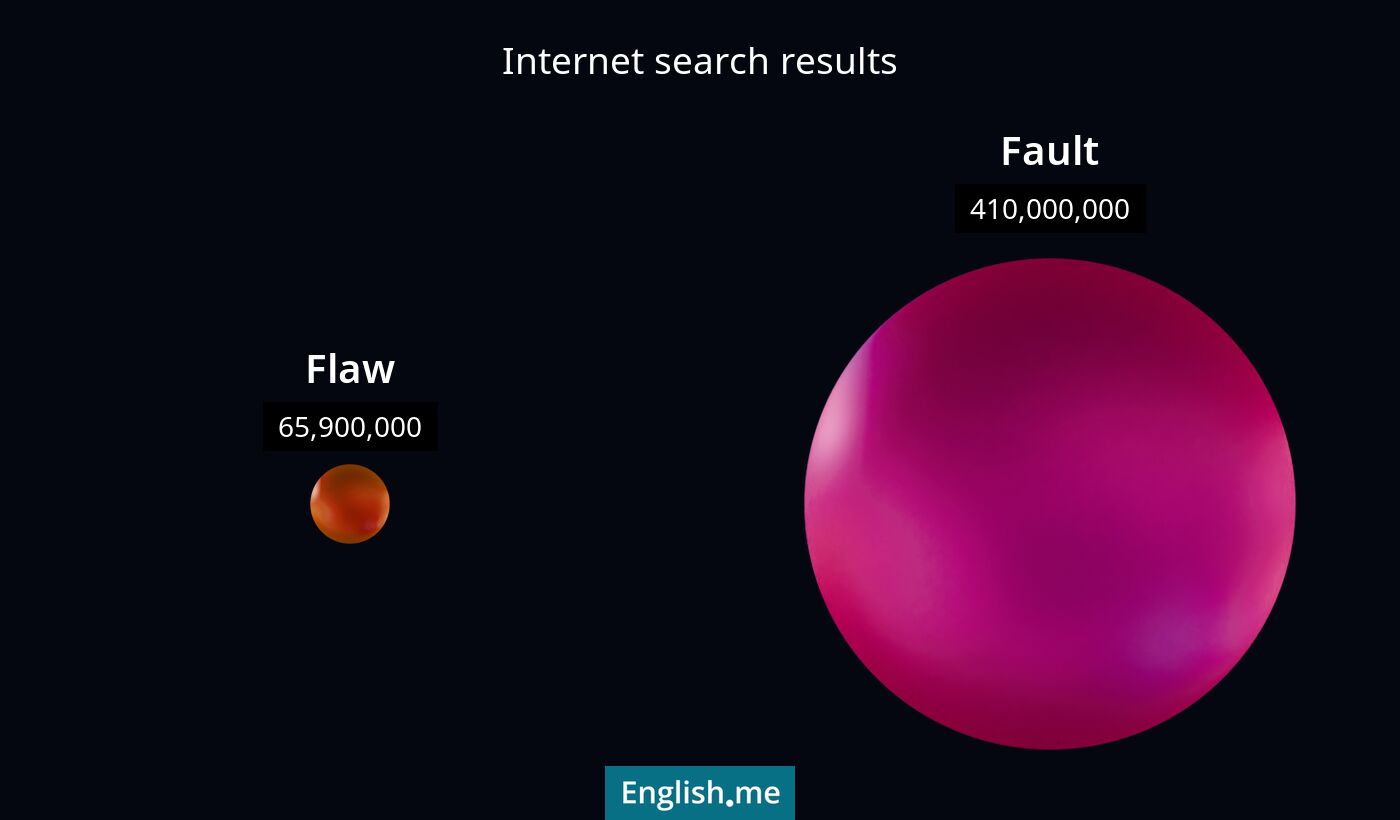The nuances of imperfection: "flaw" vs. "fault"
Reviewed and edited by  Lloyd Cooper 06/10/2024, 01:41
Lloyd Cooper 06/10/2024, 01:41
English.me team member

 What is similar?
What is similar?
Both "flaw" and "fault" refer to imperfections or defects. They can be used to describe problems or deficiencies in objects, systems, or people.
 What is different?
What is different?
A "flaw" often implies a minor or inherent imperfection, often with a nuance of being something that is part of the nature of the subject. "Fault" can imply a larger or more blameworthy imperfection and often carries a sense of responsibility or error.
 Which one is more common?
Which one is more common?

 Examples of usage
Examples of usage
Flaw- The diamond had a small flaw that was barely noticeable.
- There's a flaw in the argument that needs to be addressed.
- Her plan was almost perfect, save for a single flaw.
- The engine failure was due to a design fault.
- It was his fault that the project was delayed.
- The electrical system had a fault that caused the power outage.

 English
English español
español française
française italiano
italiano deutsche
deutsche 日本語
日本語 polski
polski česky
česky svenska
svenska Türkçe
Türkçe Nederlands
Nederlands